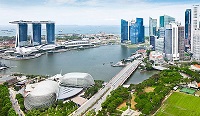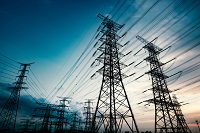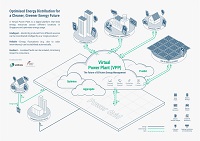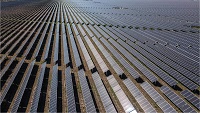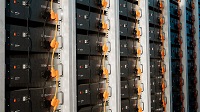A Singapore Government Agency WebsiteHow to identify
Official website links end with .gov.sg
Government agencies communicate via .gov.sg websites
(e.g. go.gov.sg/open).Trusted websites
Secure websites use HTTPS
Look for a lock ( )or https:// as an added precaution. Share sensitive information only on official, secure websites.
Commercial agreements can include administrative fees: EMA
In his letter (“Can landlords impose surcharges on utility bills?”; Forum Online, last Saturday), Mr Ang Peng Seong said the Energy Market Authority (EMA) had refused to provide a clear answer to his query. This was not the case.
After receiving Mr Ang’s enquiry in May, EMA had followed up and conducted a thorough investigation.
We held separate meetings with Mr Ang and his landlord, and ascertained that his company had signed a lease agreement with the landlord. The agreement specifies an administrative fee on top of the charges by SP Services for electricity consumed by the tenant. This was a commercial contract which the landlord and tenant had signed based on mutual consent. The law does not prohibit commercial contracts from including such fees.
Despite several attempts by our officers to clarify with Mr Ang, he refused to accept EMA’s reply. Instead, he insisted that EMA must confirm his statement that “the landlord is at liberty to impose whatever surcharges or admin fees as it deems fit” and “EMA can do nothing to prevent such practices”. He also indicated on several occasions that he intended to escalate the matter.
The EMA informed Mr Ang that we would provide the same factual clarification to him and his landlord, to ensure fairness to all parties. We reiterated our explanation that the administrative fee is a commercial and contractual matter between the landlord and tenants.
Upon receiving our e-mail, Mr Ang said that EMA “has refused to answer the question” and he would “take this to the next level”. At this point, our chief executive replied: “Please go ahead and raise the matter to higher levels if you wish to. I stand by my colleagues and our responses to you on this matter”.
It is important for EMA, as a regulator, to act in accordance with the law and adopt an even-handed approach in how we deal with different stakeholders. We will continue to perform our duties in a fair and objective manner, without fear or favour.
Juliana Chow
Director, Corporate Communications
Energy Market Authority
Can landlords impose surcharges on utility bills? (2 Aug)
I am the tenant of a shop. Recently, a few other tenants and I discussed how we were being charged for the utilities of our units.
Our electricity and water bills are handled by the landlord as tenants are not allowed to have billing arrangements with SP Services. Instead, the landlord's staff come by every month and take the sub-meter readings for electricity and water consumption, and bill the tenants for their respective usage.
Under our lease agreements, the landlord imposes a 15 per cent "administrative fee" on the electricity bill.
For water usage, the landlord charges the tenants $2.15 per cubic m - 84 per cent above the standard water tariff of $1.17 per cubic m. The statutory 30 per cent water conservation tax is then levied on the usage bill.
The landlord is clearly collecting more water conservation tax than what the PUB is billing it for.
We inquired with the PUB and Energy Market Authority (EMA) to better understand if landlords are allowed to impose such surcharges.
The PUB proved to be forthcoming and responsive. After collating information from the tenants, it kept us updated on its investigations.
In the end, it told us the landlord had agreed to follow the standard tariff of $1.17 per cubic m with effect from September. It is now looking into whether the landlord was erroneous in charging an inflated tariff.
In contrast, dealing with the EMA has been frustrating. Its position is that since there is a commercial arrangement under the lease agreement, it is an issue between the landlord and the tenants.
Although we explained that we were not expecting it to intervene in any commercial arrangement, the EMA refused to provide a clear answer to the simple question of whether a landlord is at liberty to impose any surcharges or administrative fees on electricity bills.
Its chief has also told us to "raise the matter to higher levels" if we wish to.
As a matter of public interest, we would be grateful if the relevant authorities could provide a clearer response to the question we posed. The issue could point to a lack of clear public policy or regulatory oversight.
Ang Peng Seong
